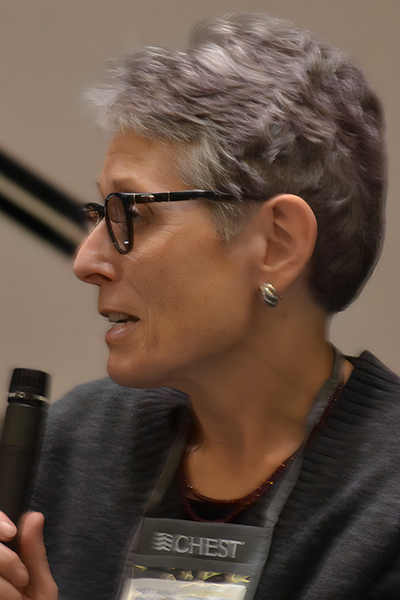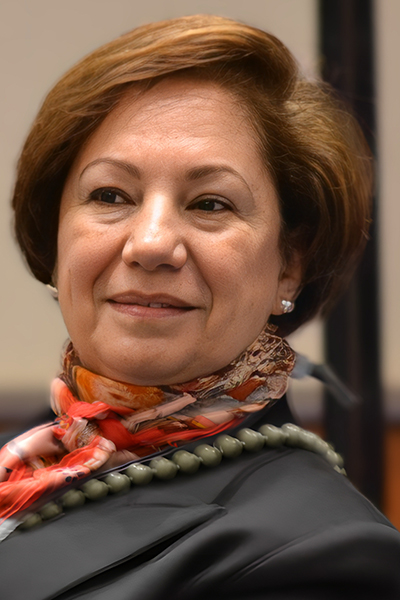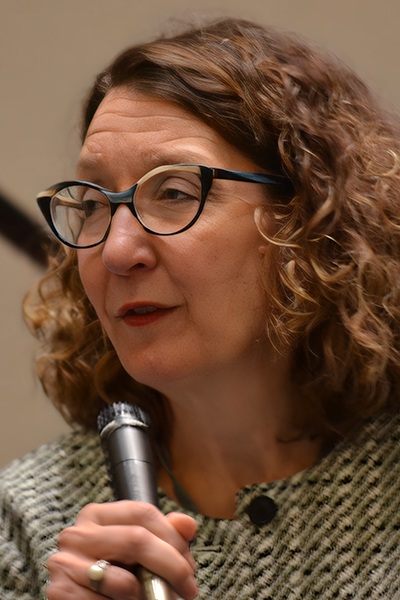Leading teams of clinicians, academics, researchers, and other medical staff can be a formidable task at any time, but in the United States, cuts to federal grant funding and a rising tide of anti-science sentiment have created new obstacles in 2025.
Overcoming these difficulties requires collaboration, transparency, and a delicate balance between messaging and listening, according to panelists during the CHEST 2025 session Leadership in Turbulent Times: Facing Challenges in Funding and Policy, on Sunday, October 19, in Chicago.
Some of the most crucial lessons for success have come from efforts to work collaboratively across traditional academic and political divides, panel members shared.

“We need one another to survive. We can’t sit in our own silos,” said Anne Dixon, MD, Professor of Medicine in the Division of Pulmonary and Critical Care and Chair of the Department of Medicine at the University of Vermont. “There has been more collaboration and more communication that we should have been doing years ago.”

M. Patricia Rivera, MD, FCCP, Professor and Chief of Pulmonary and Critical Care Medicine at the University of Rochester, said that her research teams in the Department of Medicine worked collaboratively between divisions to pool resources and funding expertise that enabled the department to protect people’s jobs.
Leaders must be careful to pick and choose their battles, Dr. Rivera said, but some of the most critical work of leaders at this time is protecting the essential work of clinicians and medical researchers and preserving career growth opportunities for young faculty members and professionals.
“It’s tough, but it is where leadership and advocacy come into play. You have to navigate the resources of the institution, but you have to advocate for your people,” Dr. Rivera said.

Patricia Kritek, MD, EdM, Interim Chair of the Department of Medicine and Vice Dean for Faculty Affairs at the University of Washington School of Medicine, noted that protecting jobs can also include reassessing criteria for promotion and advancement in the context of lost funding.
Recognizing how the sudden grant cuts impacted projects and studies, Dr. Kritek’s department provided an extra year for promotion evaluation—a move she described as being able to “turn down the temperature on things we can control.”
Dr. Kritek explained that her work at the University of Washington includes programs in four comparatively conservative states: Alaska, Idaho, Montana, and Wyoming. And while legislators in these states have objected to aspects of the university’s medical program, the university is often able to find common ground and build trust through focusing on issues of rural health and other initiatives that provide direct benefits to those populations.
Whether working across political divides or within an organization, leaders should be deliberate about transparency and communication.
“Transparency builds trust,” Dr. Rivera said. “You have to explain to individuals what is happening.”
One of the biggest obstacles to transparency can be assumptions on a leader’s part that everyone on their team is aware of what is affecting their institution—or even has access to that information, Dr. Rivera said. For this reason, she has made detailed presentations to her teams about budget constraints and other challenges. She said it is also important to recognize when to share information to a group and when information is best conveyed in one-to-one meetings.
Effective leaders must navigate rumors and uncertainty while still remaining committed to transparency, Dr. Dixon said.
“It is absolutely critical for a leader to be transparent, but there is so much uncertainty, and you don’t want people to panic,” Dr. Dixon said. “I want to give people information about what is going on, but I don’t want people to get too upset—and that’s a fine balance.”
Another important balance for leaders to strike is to create communication opportunities that can convey important information but can also provide opportunities for others to talk about the turbulent times affecting everyone—not only leaders.
“You have to leave some space for emotion and for people to speak about how troubling all of this is,” Dr. Kritek said. “If we don’t have some latitude to let people talk about how they are feeling and how they are being impacted and what they are hearing from their teams, then I think it is hard to go forward.”

Call for Topics Is Open
Feeling inspired by all the great sessions in Chicago? Help shape the curriculum for CHEST 2026, October 18 to 21 in Phoenix, by submitting topic ideas from areas you’re passionate about, topics affecting your practice, or new technologies you’d like to learn more about. The submission deadline is Tuesday, December 2, at 2 pm CT.


